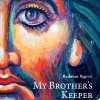A Democrat from Dinuba, California, Senator Vuich represented the region for 16 years until retiring in 1992. Senator Vujich had earned a reputation for voting her conscience and did not look kindly on bill that had no value other than attracting campaign contributions for lawmakers.
Senator Vuich was a farmer from Dinuba in Tulare County, President of the Chamber of Commerce, and a tax accountant. In addition, she was a member of the Tulare County Democratic Central Committee and served on the board of directors for the Alta Hospital District, Agricultural District Fair, Commission on the Status of Women, and the National Society of Public Accountants.
.Her first victory wouldn't be her last. Senator Vuich held on to her seat in the Senate for 14 years before retiring in 1991. Had she become a Senator after 1992, term limits would have truncated her career in the California Senate by limiting her service to a lifetime maximum of two four-year terms. During her tenure, she became Chairperson of the Senate Banking and Commerce Committee. She was also the first woman to preside over a Senate floor session. Her election opened the door for many other women to follow in her distinguished footsteps.
Senator Vuich was instrumental in getting the local freeway system built. She left an enduring legacy of ethical and honest behavior.
Rose Ann Vuich passed away, at the age of 74, on August 30th, 2001. In 1998, an award for ethical leadership was established in Senator Vuich's name.
Senator Vuich was a role model for women in government. It was difficult being California's first woman state Senator, but she broke into that men's club with humor and dignity.





